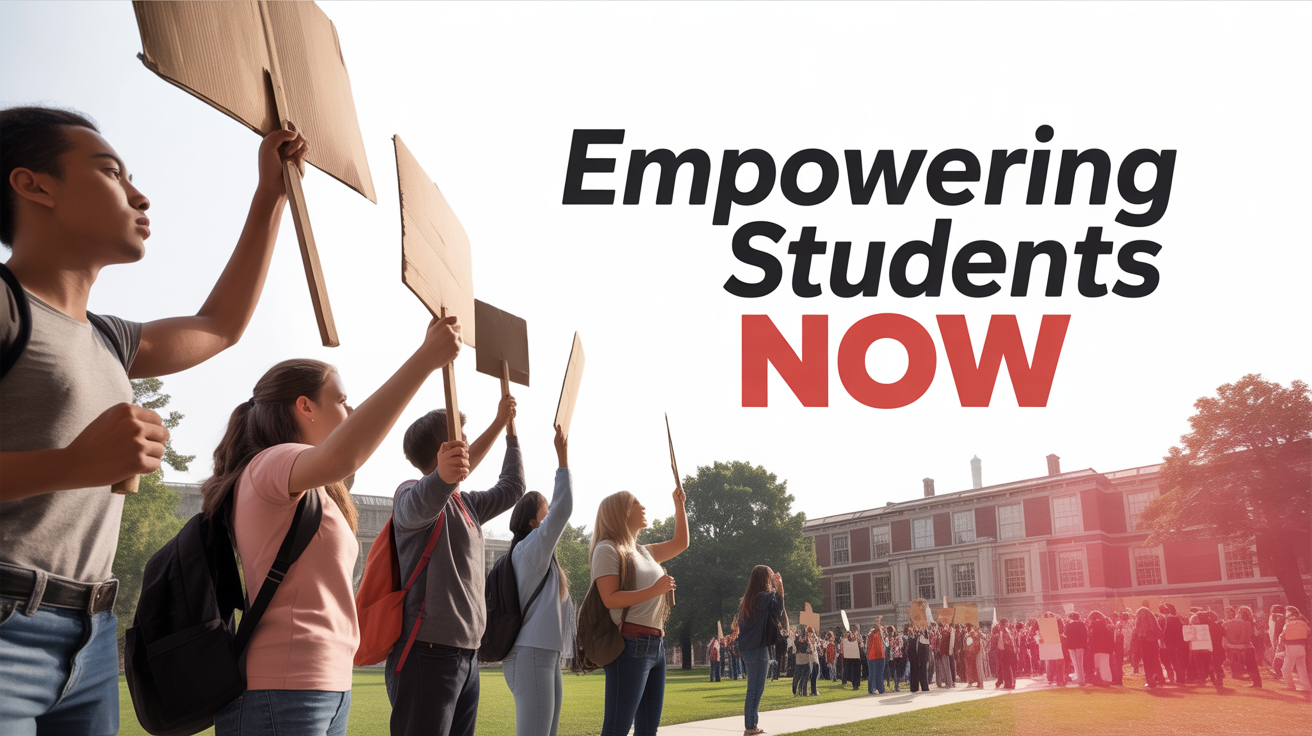In today’s changing education system, the role of student government has become more important than ever. If you study in a college or university, you must have heard about the student union, student council or student union at some point or the other. These organizations are not just for namesake, but in fact they are the voice and leadership face of the entire student community.
The student government not only acts as a bridge between the students and the university administration, but it also plays an important role in protecting the rights of the students, participating in making new rules, and creating a positive atmosphere in the university.
Why is student government important?
Suppose you study in a college and the food in the canteen is expensive and bad. You and your friends feel that something should be done about it. But can you go straight to the Vice Chancellor or Dean and complain? Probably not. This is where the student government helps you.
Student government representatives listen to students, conduct surveys, and then communicate these issues to the administration. At times, student governments have improved canteen menus, relaxed fee structures, improved hostel facilities, and even strengthened mental health services.
That is, it is not limited to academic issues, but focuses on anything that can make students’ lives easier.
Key responsibilities of student government
Advocacy and representation
Student government is actually the voice of students. Whenever a new rule is made or a major change is made, student government ensures that students’ opinions are included in it.
For example, in many universities, hostel curfew time was very early. Student government raised this issue and gradually got the time extended by convincing the administration.
Making policies and rules
The student government is consulted on all policies that are made in the university—whether it is related to exams, fees, hostels or classrooms. This ensures that the rules are fair and beneficial for the students.
Leadership development
Students working in student government get a chance to lead. They learn skills like teamwork, communication, problem solving and management, which will help them throughout their life even after their studies are over.
For example, a student is the president of the student union. He has to give speeches repeatedly, hold meetings with the administration and listen to students’ complaints. Gradually, his confidence and leadership skills become very strong.
Networking and building relationships
By being in student government, students get a chance to meet their peers, teachers and senior officials of the university. This networking proves to be very helpful in getting a job or building a career in the future.
Services and events
The student government is not just limited to filing complaints or formulating policies, but it also organizes various events and programs such as fests, sports competitions, cultural programs, awareness campaigns and social service activities.
Impact of Student Government
Several studies show that universities where student government is active have higher student participation and lower drop-out rates.
- Higher Participation: When student government regularly organizes events and programs, students feel more engaged.
- Increased Retention Rate: Students who get emotionally attached to the college are less likely to drop out.
- Positive Environment: Student government creates an inclusive and supportive environment on campus.
Strengthening Student Leadership
Working in student government is not just politics, but a platform for leadership training.
- Practice Public Speaking: Representatives have to repeatedly give speeches and speak in front of students. This eliminates their hesitation.
- Teamwork and Collaboration: Student government works as a team. Everyone has to make decisions together.
- Problem Solving: From small issues to big crises—student government always tries to find solutions.
- Networking: Relationships are formed with the university administration and outside organizations, which are helpful in future careers.
Promoting Inclusivity and Diversity
One of the biggest achievements of student government is promoting diversity and inclusivity.
- It gives a platform to students from different cultural and social backgrounds.
- Student government organizes events from time to time that give all students an opportunity to understand and respect each other’s culture.
For example, “International Student Day” is celebrated in many colleges where students from different countries showcase their culture, food and traditions.
Impact on Policies
Student government also has a direct impact on the administration of the university.
- Policy suggestions: Such as fee waivers, changes in exam patterns, increasing lab and library timings.
- Budget and resource distribution: Sometimes the student government decides how much funding student organizations and clubs will receive.
- Advocacy and lobbying: The student government raises student issues with the administration and the state government.
Real Examples
- Delhi University Students’ Union (DUSU): The DU student union is very popular in India. The student leaders here have often raised issues like fee hike, hostel crisis and women’s safety.
- Many universities in America: Student governments there are very active in mental health services and campus security.
- Examples of small colleges: Many times in small colleges, the student government has improved the canteen food or hostel facilities.
Statistics Show
- According to a survey of American universities, 81% of students believe that student government is very important for campus life.
- A study by the University of Wisconsin showed that student government initiatives increased diversity and inclusiveness on campus.
- According to the Higher Education Research Institute, 70% of students believe that student government makes their voice reach the right place.
Conclusion
Student government is not just a platform to contest elections or do politics. It is actually a powerful tool to solve the problems of students, make their lives easier and prepare them for the future.
It teaches us how to raise our voice, how to lead and how to bring change in society. That’s why every student should participate in student government, either by becoming a representative or by voting in elections.
